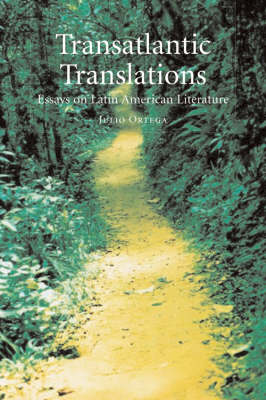Conceived of as the 'New World', Latin America represented a new beginning for its discoverers, yet, in fact, the colonials were only continuing their search for what they knew all along they wanted to find: fertile land with an abundance of spices, precious metals and labour. This idea of Latin America's invention has long been a preoccupation of intellectuals and historians, leading to the dominant postcolonial interpretation of the native as a marginalized figure often unusually wise or heroic according to his circumstances. "Transatlantic Translations" examines the ways in which the unknown has always been imagined according to what is already known, the new according to the old.
Tracing Latin American representations from the early modern to contemporary periods, in Shakespeare, Cervantes, Juan Rulfo, Ricardo Palma, Gabriel Garcia Marquez, Juan Maria Gutierrez and many others, Ortega uncovers the rich fabric of literature that has emerged from that culture, arguing that the learning of language, far from being a means for the colonial to indoctrinate and civilize the native, has given the native the means to describe and communicate with the natural world around them, and eventually to re-tell their own history. By travelling beyond the contradictions that make up any comparison between colonizer and native, Ortega negotiates a space for the Latin American narrative beyond ideas of victimization and resistance. "Transatlantic Translations" bridges the divide between abundance and scarcity, enabling the Old World and the New to meet and speak together in a shared language.
- ISBN13 9781861892874
- Publish Date 1 August 2006 (first published 1 January 2006)
- Publish Status Out of Print
- Out of Print 30 March 2011
- Publish Country GB
- Imprint Reaktion Books
- Format Hardcover
- Pages 240
- Language English
